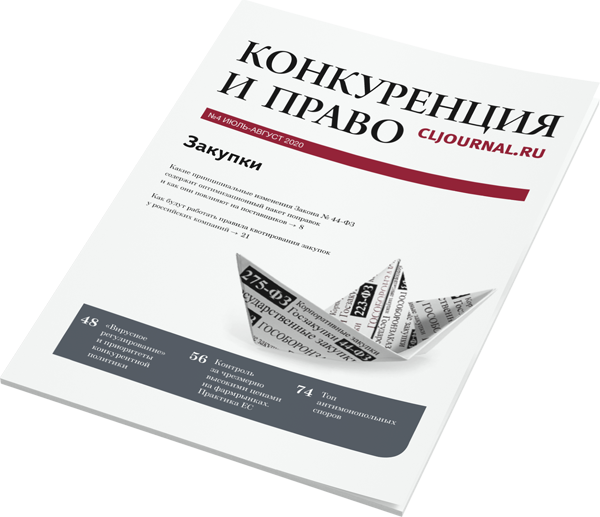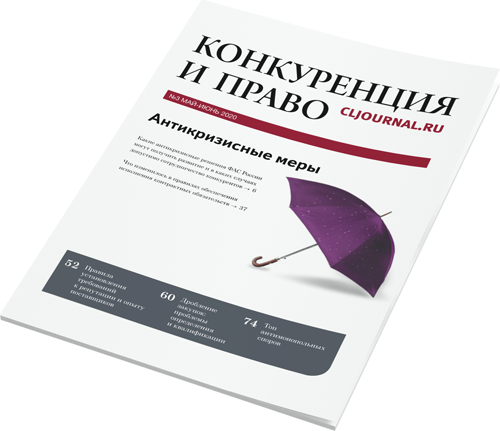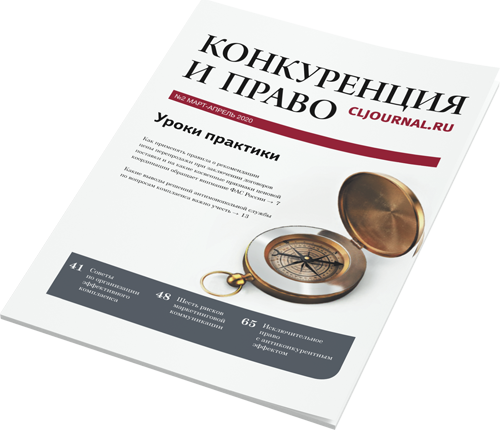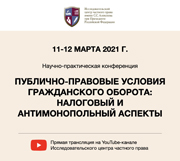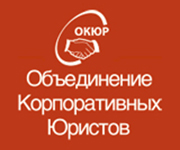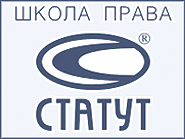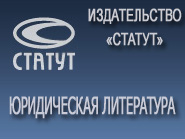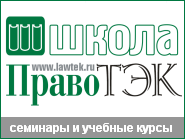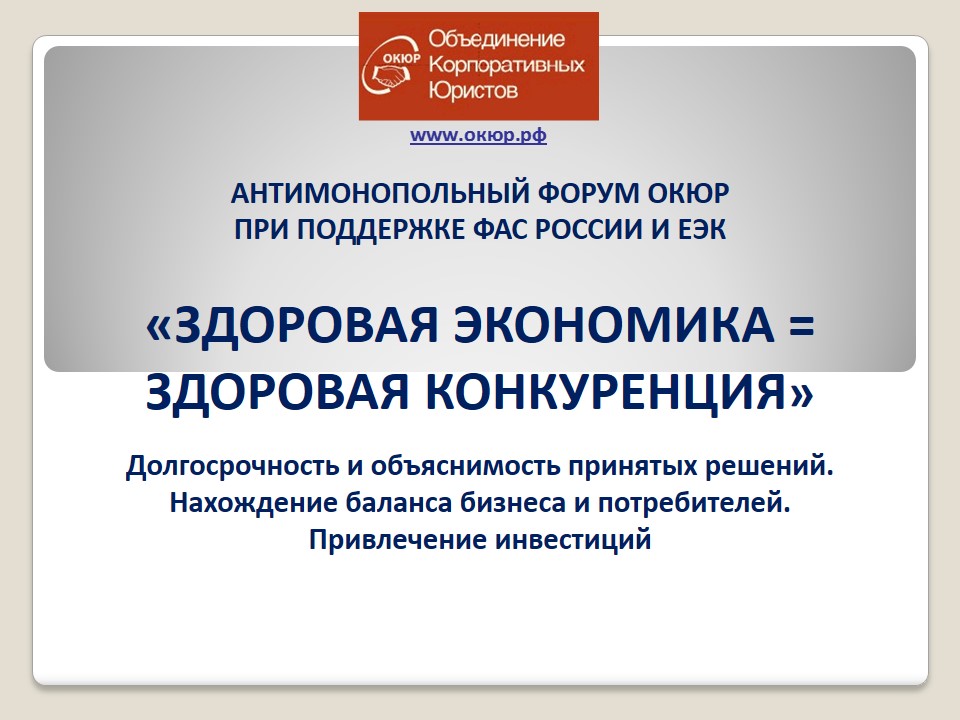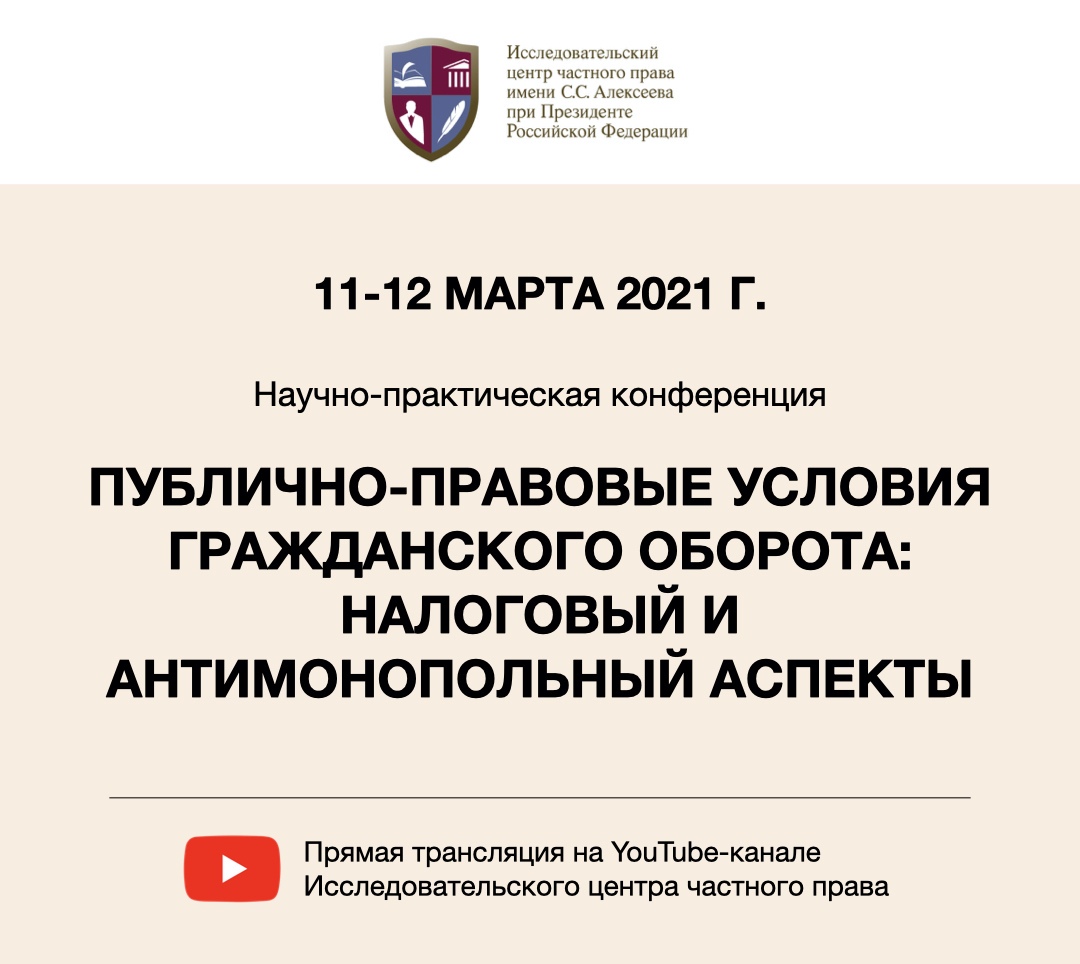|
||||||
 Gyulnara Mamedova, Associate, Pepeliaev Group The coronavirus pandemic that has spread worldwide is not only a biological hazard for the entire population, but also entails adverse consequences, such as a drop in economic activity, a decrease in the production level and breakdowns in long-term supply chains. The business sector’s attempts to make up for the losses in the conditions of the crisis may result in antitrust legislation being breached, since companies may apply unlawful methods to increase profit by squeezing competitors out of the market as well as by infringing the rights of the consumer segment. In view of the above circumstances, current antitrust regulation is characterised by two opposing trends. On the one hand, states are taking measures to ease the control exercised by the relevant authorities. On the other hand, in a number of industries, antitrust regulation is instead becoming more stringent owing to the increased risk of antitrust violations. Therefore, the following areas can be singled out in the antitrust policy of Russian and foreign antimonopoly authorities with a view to analysing the efficiency of the legal toolsapplied to the business sector.
1. Monitoring and combating the unjustified price increasesThe coronavirus has created conditions for a natural worldwide increase in the demand for individual categories of goods, which mostly include: food products, medical products and equipment, medicines, personal protective equipment, disinfectants and other goods of social significance. A number of countries have taken prompt action to monitor prices on a daily basis by fixing prices in retail chains and to check the availability of goods for sale. The permanent monitoring of companies’ pricing policy on specific product markets has been conditioned by an unjustified increase in prices having been identified on multiple occasions and upon a shortage of goods in high demand having been created intentionally. RussiaThe Russian Federal Antimonopoly Service (the FAS Russia) is carrying out daily monitoring of both the prices for essential commodities and the prices for vital products. In Russia the Government has been empowered to fix, for up to 90 days, threshold retail prices for medicines and medical products which are not on the list of vital products, but could actually become such1. Russia has also formed an emergency operations centre to control the situation on certain markets. UKThe Competition and Markets Authority (CMA), the UK’s antitrust regulator, is undertaking similar measures. In addition, the CMA is encouraging manufacturing companies to jointly fight against unfair pricing by fixing maximum retail prices for their products, such as basic medical products. Moreover, the UK has created a specific TaskForce aiming to identify unlawful pricing methods and to apply appropriate measures to ensure compliance with the legislation. EUThe European Competition Network (ECN) has also issued a reminder in its guidelines that manufacturers are allowed to include maximum prices in the terms and conditions of contracts. It is worth pointing out that the ECN’s members have expressed their great concerns about the practice of unfair pricing resulting from cartel agreements to fix prices or from an abuse of a dominant position. In the conditions of the epidemiological crisis, the specified forms of anticompetitive behavior are the most popular ones, most notably in the pharmaceutical sector. Other countriesIn France, Greece, Spain and China, suppliers and distributors of medical face masks, gloves, antiseptics and other medical supplies have also become subject to antitrust control carried out with respect to markets with signs of an unjustified price-gouging. In China over 4,500 companies have been fined for excessive prices for medical and food products. 2. Misleading consumers and false advertisingThe activity of antitrust authorities is aimed at identifying various exploitative abuses and other unfair practices misleading consumers with respect to the features and qualities of goods and services to ensure the efficient sale and promotion of such goods and services. ItalyIn the existing circumstances, online trade is predictably gaining momentum as an optimal method to meet needs with minimum effort being exerted. The Italian antitrust authority (AGCM) has initiated cases against Amazon and eBay based not only on signs of an unjustified price-gougingfor medical face masks and disinfectants, but also based on signs of false advertising. ChinaIn such cases online platforms are recommended to closely monitor the activity of pricing algorithms to prevent unintended price spikes. China’s State Administration for Market Regulation (SAMR) has also announced an escalation of the measures aimed at fighting misleading advertising in the retail sector, including in e-commerce. Beijing, Shanghai and a number of other places have already launched an active campaign against such forms of unfair competition. RussiaThe antimonopoly authorities are taking active measures to fight the unfair conduct of companies misleading consumers with a view to soliciting them to acquire goods and services presented as treatment for COVID-19. In Russia OTCPharm was held liable for the misleading advertising of Arbidol as medicine against the coronavirus. Moreover, FAS Russia has lately initiated a number of cases against animal hospitals that offered services relating to the diagnosis, vaccination and treatment of cats and dogs for the coronavirus. Other countriesThe antitrust authorities of Canada, Netherlands and UK have addressed representatives of the business sector to hold them accountable for their actions that may be aimed at misleading consumers with respect to the efficiency of personal protective equipment and other goods with a view to generating profit from the spread of COVID-19 by using unfair marketing policy. The CMA is carrying out a thorough analysis of the market of medical products, including disinfectants. The US Federal Trade Commission (FTC) has also issued warnings for a number of companies that make inaccurate statements regarding the efficiency of some products for the prevention or treatment of COVID-19.
3. Identifying and preventing the activity of “crisis cartels” and the abuse of a dominant positionUnstable market conditions have become a catalyst for the increase in the number of anti-competitive agreements, including cartels. In various jurisdictions the antitrust authorities are taking active measures to fight the so-called “crisis cartels”. In the conditions of a crisis, cartels and abuse of a dominant position become more likely to emerge, since the conditions for doing business are significantly deteriorating. RussiaFor example, in Russia the trend for the strengthening of the anti-cartel policy has been existing for quite some time now, which includes toughening the liability for cartels. Therefore, in the current conditions the food and pharmaceutical markets which are potentially more prone to monopolisation are coming under the intense scrutiny of the antimonopoly authorities. The FAS Russia has analysed monitoring data, carried out a number of unannounced inspection (dawn raids) and identified several cartels fixing high prices for such scarce goods as face masks and buckwheat (read about it here and here). Moreover, Russia is placing specific emphasis on the conduct of the natural monopolies associated with imposing disadvantageous terms and conditions and services, refusing to conclude agreements and unjustified price-gouging in the conditions of the pandemic. USAThe US Department of Justice is expecting an outbreak of cases involving cartel agreements. Seeking to keep business running, companies are starting to cooperate with competitors to achieve the relevant goals. For example, competitors may agree not to reduce the prices or how to reduce overcapacity in the event that demand drops. According to William P. Barr, the United States Attorney General, the Department of Justice will take measures to prevent unlawful actions relating to the production, distribution and sale of medical products by using the methods violating antimonopoly legislation such as fixing prices or bid rigging. However, joint activity in the areas such as R&D and in a number of other cases described below will not be recognised as a cartel. EUIt is worth pointing out that the EU is reluctant to grant any exemptions from the legislation on competition owing to the COVID-19 pandemic. On 23 March 2020 the EU antitrust authorities made a joint statement to assure companies that they will not be actively interfering with necessary and temporary measures taken to avoid a shortage of the goods or with difficulties in the area of transportation and logistics. That is to say that the anti-cartel provisions will not apply in the event that cooperation is to the benefit of society. However, companies’ actions seeking to unlawfully exercise their market power by using a cartel or abusing a dominant position will be stopped even if such actions are temporary in nature and are grounded in the emergency situation. Moreover, the EU has emphasised that “leniency program” for reporting participation in a cartel will continue to apply regardless of the emergency situation. UKWith regard to cartel-related issues, the CMA has specified that competitors are allowed to provide information about warehouse stock, prices and supply terms. However, it has been emphasised that there still is a strict ban on prices for suppliers or end-consumers being further agreed. The flexibility demonstrated in antitrust regulation does not entitle companies to collude in a way that may harm consumers. According to the CMA, the following actions are still banned: competitors exchanging commercially sensitive information about a pricing policy or about business strategies used unless there is an urgent need to do so; refusing to enter into cooperation with smaller rivals to ensure the security of supply; collusion between undertakings aimed at mitigating adverse commercial consequences of a fall in demand by artificially keeping high prices to the detriment of consumers’ interests; coordinating the activities of undertakings in a way that is actually neither necessary nor justified, for example with respect to distributing goods or services in sectors unaffected by the COVID-19 pandemic. Price manipulations are typical not only of cartels, but also of the abuse of a dominant position. Therefore, the CMA has specified that unfair practices of undertakings that occupy a dominant position (even if such position is grounded in the circumstances of the crisis) will also be precluded if such practices entail the artificial price increasesfor goods and services of vital significance for consumers. Other countriesAt present the Japanese antimonopoly authority is investigating a case involving the pharmaceutical operator Kokumin which has been accused of illegal product tying, i. e. face masks, with other medical products. Moreover, the Polish antimonopoly authority has also commenced an investigation of an alleged abuse of a dominant position by suppliers of medical equipment who have terminated contracts with hospitals for the supply of personal protective equipment (face masks) with a view to re-concluding such contracts fixing higher prices for the goods. Such terminations are not allowed. Therefore, antitrust authorities around the world are actively preventing companies from obtaining unjustified economic benefits in the conditions of the crisis. 4. Acceptable conduct of competitors to combat the consequences of the pandemicHowever, in the tough epidemiological situation a number of countries have eased antitrust regulation for some cases of horizontal collaboration aimed at efficiently combating the consequences of COVID-19. UKWith a view to improving the distribution and ensuring the availability of goods, the UK has allowed competing retailers (supermarkets) to coordinate joint actions. However, such coordination is allowed if the relevant measures: 1) are appropriate and necessary for avoiding a shortage or ensuring the security of supply, 2) meet the public interests, 3) are useful for consumers, 4) are aimed at settling key issues resulting from the pandemic, and 5) will not last longer than this is needed for the “critical issues” to be resolved. Therefore, in the conditions of the pandemic, the coordination of activity is allowed if such activity is aimed at reducing a shortage and ensuring the security of supply, providing services of public significance and providing new services that may be related to delivering food products to vulnerable groups of consumers. USAThe FTC and Department of Justice listed in a joint statement dated 24 March 2020 the acceptable forms of joint activity aimed at improving response measures to protect health and ensure safety. Such cooperation involves the following measures:
However, organising the above forms of cooperation requires compliance with the established procedure and certain requirements. Companies should, first of all, on an individual basis assess whether such cooperation is acceptable from the perspective of antitrust legislation, and subsequently apply to the competent authorities for advice to obtain an assessment of their proposed joint activity. An accelerated procedure is provided for considering a proposal to organise such a venture. The relevant decision is taken within seven calendar days from the time when all the necessary information is received from the parties. There have already been cases in which the above new developments have been successfully implemented. Thus, in March the US Department of Justice supported the joint efforts of distributors (McKesson Corporation, Owens & Minor Inc., Cardinal Health Inc., Medline Industries Inc., and Henry Schein Inc.) to implement the “Airbridge” project aimed at accelerating and extending the production and at improving the supplies and distribution of personal protective equipment in the conditions of the pandemic. A further example is the joint research conducted by the pharmaceutical companies Pfizer and BioNtech to develop a vaccine against COVID-19. EUIn response to Eurocommerce’s statement that antitrust regulation may be eased with a view to allowing retailers to freely communicate with each other, ECN has specified that there will be no suspension of legislation. However, this does not rule out joint activity if such activity is efficient and useful and does not eliminate competition. By way of an exception, the European Commission is ready to issue comfort letters to companies with regard to specific joint venture projects that should be promptly implemented to efficiently combat the outbreak of COVID-19, specifically if there is uncertainty as to whether such initiatives are in line with the EU legislation on competition. Other countriesThe antitrust authority of Iceland granted to the representatives of the travel sector (travel agents, hotels and tour operators) temporary immunity from anti-cartel provisions being applied to them until 30 April 2020. Companies are allowed to jointly search for ways to reduce the number of cancelled flights and to increase the demand for trips to Iceland. However, joint discussions about pricing and the conditions for doing business are prohibited. Moreover, the government of Norway has also granted immunity for three months from the anti-cartel provisions to the competitors SAS and Norwegian Airlines as well as to railway and marine carriers. This has been done to enable companies to jointly ensure minimum domestic air-borne transportation of people and cargo. The Netherlands has provided for similar exemptions in the retail sector: thus, 1) supermarkets are allowed to exchange information about their actual stocks; 2) competing distributors of food products are allowed to cooperate; 3) wholesalers of pharmaceutical goods are allowed to exchange information about sales.
It appears that the specified exclusive measures (exemptions) have a limited scope of application with regard to specific business sectors which are most affected by the crisis, since their joint activity facilitates fixing breakdowns in supply chains and meeting consumer demand more efficiently. With regard to other matters the legislation on competition continues to apply in its entirety.
5. Changing the procedure for agreeing merger transactionsIn the situation with the coronavirus a number of countries have either suspended or changed the procedure for approving M&A transactions with regard to how such transactions should be considered. USAThe US Department of Justice has announced temporary changes to the procedure for filing the approved notification form under the Hart-Scott Rodino Act (HSR) and to the procedure for filing pre-merger notifications and to merger consideration processes. Thus, for transactions that were under consideration at the time when the tough epidemiological situation emerged, the deadline has been extended for 30 days for the review to be completed after the relevant documents have been provided. The Department of Justice and FTC have mandated electronic filing of submissions. The statement also emphasises that the process requests may be accelerated for some joint ventures whose activity is aimed at improving response measures to ensure the safety and protection of health. EUIn March the EU Directorate-General for Competition (“DG Competition”) urgently requested parties at the pre-merger notification stage to postpone filing until further notice owing to difficulties with gaining access to information that may result from the measures that have been taken to organise remote work. However, companies are allowed to provide information to justify the need for their applications to be considered as a priority. The reasons for this may be as follows: 1) an upcoming long-stopdate; 2) grave financial business risks and the risks of fines; 3) the transaction is subject to a simplified agreement procedure and there is no need for the market analysis to be carried out. However, the European Commission recommends filing documents in electronic form via its document exchange system eTrustEX. Other countriesThe antitrust authorities of the UK, the Netherlands and China are also going to organise a remote procedure for accepting applications to ensure uninterrupted activity, avoiding long delays. France, Italy and Spain have suspended the approval of such transactions. 6. The measures taken in RussiaState authorities, including the Ministry of Finance and FAS Russia, have taken a number of urgent measures aimed at ensuring a timely response to and elimination of various consequences relating to the threat of the spread of COVID-19:
Many measures being taken by the state authorities are aimed at a temporary relaxation of antitrust regulation in order to support business and ease the financial burden in the circumstances that have evolved. However, despite the above, the antimonopoly authorities are being vigilant about the conduct of business entities with a view to identifying unlawful activity. The most typical violations in recent months include an unjustified price increases for some products (ginger and lemons), cartel agreements to fix prices for goods of social significance (face masks and buckwheat) and unfaircompetition mostly relating to false advertising of medical goods (the medicines Arbidol and Allokin-alfa) and services (medical centres and animal hospitals). The antimonopoly authorities have issued warnings for violating companies to stop unlawful actions in the area of advertising and notes of caution prohibiting violations of antimonopoly legislation and demanding that prices for the goods of social significance be reduced. Moreover, a thorough investigation of cartel agreements is still ongoing. Should such agreements be proven, companies will be subject to huge fines and criminal liability. The distinctive feature of all of the described violations is that the companies were seeking to derive an economic benefit from the tough epidemiological situation.
ConclusionsIn the crisis conditions, antitrust authorities are becoming more vigilant with respect to changes in the economic conduct of companies owing to an increased risk of violations. In parallel with the strengthening of the response of the antitrust authorities, measures are being taken to combat the consequences of the spread of the new coronavirus infection. Summing up the analysed blocks of changes, the following conclusions can be made. 1. Price monitoring is at present the most popular preventive practice, which facilitates the successful identification and prevention of unfair pricing manipulation with regard to goods which should be made most available in the current conditions. Such monitoring both in Russia and abroad is stabilising the pricing policy on markets of social significance with the aim of protecting the most vulnerable market segment – consumers. 2. The thorough investigations of collusion that are being carried out in the food and pharmaceutical sectors prevent companies from accumulating wealth unlawfully during the crisis. However, the most innovative measures relate to the development of a list of cases in which close cooperation between competitors may be recognised as acceptable. Such measures are of the utmost interest, since the state is actually providing business with “tools” that may help consumer demand to be met and the consequences of the pandemic to be eased. In Russia the antimonopoly authorities did not provide for such changes, and it is probably worth taking note of the policy of foreign colleagues. For instance, it would be reasonable to allow, as some states do, joint activity of competitors in the area of pharmaceutical investigations (the development of a vaccine) and in the retail sector with a view to avoiding a shortage of commodities (face masks). However, it will not be that easy for companies to prove that such horizontal cooperation is justified. So, the acceptability criteria for the joint activity should be clear and worked through in detail. Through a preliminary agreement of the forms of horizontal cooperation with the antitrust authorities, companies will be able to safeguard themselves against the risks of violating the legislation on competition. 3. The suspension of granting approvals with respect to M&A transactions abroad is a natural reaction of the authorities grounded in communication with business undertakings becoming more complicated. However, this may adversely impact both the internal relationships between the parties to a transaction (owing to the forced delays and the emerging uncertainty in this process), and the financial side of this issue. It is worth specifically noting the fact that in Russia such measures have not been applied to economic concentration transactions. 4. A huge portion of the changes to Russia’s antimonopoly policy relates to the legislation on public procurement. The amendments adopted to the key piece of legislation in this area, Federal Law No. 44-FZ, are aimed at supporting business under the conditions of the spread of COVID-19 as a force-majeure circumstance. The simplified purchase procedure will allow customers to obtain the required resources faster, including medications, personal protective equipment, disinfectants etc. Moreover, the practice of examining cases in the pandemic period testifies that the most popular identified violations either fall within the area of advertising or relate to the stability of the pricing policy on the market of food and medical products owing to such products being of particular significance at present. 1 Federal Law No. 67-FZ dated 26 March 2020 “On amending article 60 of the Federal Law “On the circulation of medicines” and article 38 of the Federal Law “On the fundamentals of protecting the health of the citizens of the Russian Federation”. 27 мая 2020 г.
|
|

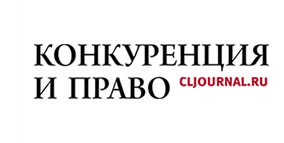
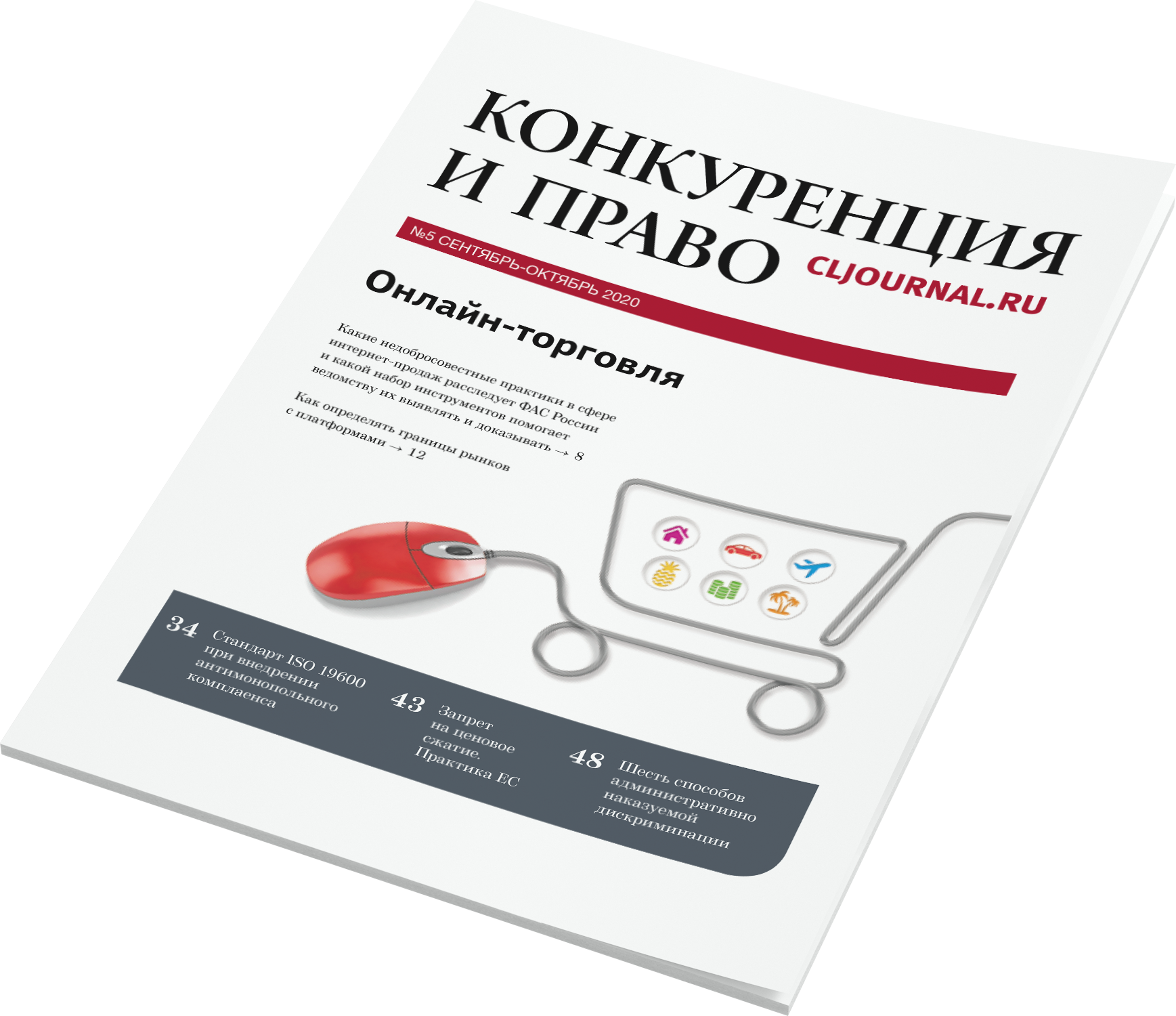
 Elena Sokolovskaya,
Partner, Head of Antimonopoly Practice, Pepeliaev Group
Elena Sokolovskaya,
Partner, Head of Antimonopoly Practice, Pepeliaev Group

